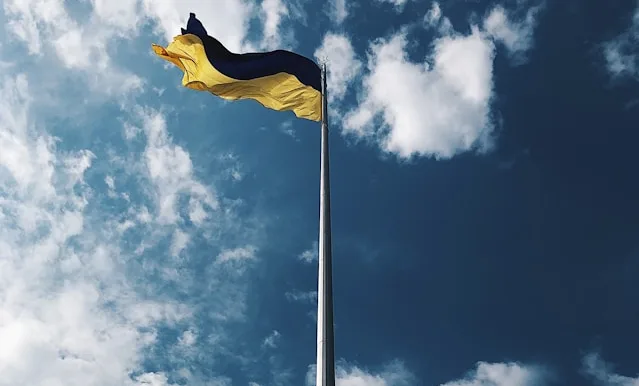Kyiv’s forces withdraw from Chasiv Yar amid escalating Russian assaults; Moscow’s military exercises raise global concerns
The conflict in eastern Ukraine has intensified as Ukrainian troops strategically retreat from Chasiv Yar, a pivotal town in the Donetsk region, amidst relentless Russian advances. Oleh Shyriaiev, commander of the 255th assault battalion entrenched in the area, lamented the situation, citing extensive destruction caused by Russian forces. “We regret losing territory, but we cannot defend what has been reduced to ruins,” Shyriaiev stated in a phone interview from Chasiv Yar.
Russian tactics have included scorched-earth methods, burning structures not decimated by prior shelling to hinder Ukrainian defensive capabilities. Chasiv Yar’s significance lies in its geographical placement west of Bakhmut, captured by Russia following a protracted battle last year. The escalating intensity of Russian attacks on Ukraine’s defensive lines has heightened tensions and exacerbated humanitarian concerns.
Embed from Getty ImagesSimultaneously, Russia’s Defense Ministry has reported conducting military exercises involving mobile nuclear missile launchers, as per Interfax news agency reports. This move has sparked international apprehension, amplifying fears of heightened nuclear tensions amidst ongoing warfare.
Analysis:
Political Perspective: The Ukrainian retreat underscores the strategic challenges faced by Kyiv in countering Russia’s aggressive military operations. The situation highlights the geopolitical implications of Russia’s territorial ambitions and its willingness to escalate conflicts to achieve strategic objectives. The international community faces renewed pressure to intervene diplomatically and provide humanitarian assistance amid escalating hostilities.
Social Perspective: The humanitarian impact of intensified fighting in eastern Ukraine is profound, with civilian casualties rising and infrastructure devastated. Russian tactics, including scorched-earth strategies, exacerbate the humanitarian crisis, displacing communities and hindering access to essential services. The conflict’s toll on civilian lives underscores the urgent need for international humanitarian aid and diplomatic efforts to mitigate suffering and promote peace.
Racial Perspective: While not explicitly racial, the conflict in Ukraine intersects with broader discussions on national identity and territorial integrity. The ethnic composition of affected regions and historical grievances contribute to regional dynamics, influencing political alliances and perceptions of sovereignty. The conflict’s resolution will be pivotal in addressing underlying ethnic tensions and fostering inclusive governance structures.
Gender Perspective: The conflict’s gendered impacts are multifaceted, affecting women, men, and children differently in conflict zones. Women often bear disproportionate burdens during conflicts, including increased risks of violence and displacement. Efforts to ensure gender-sensitive humanitarian aid and protection mechanisms are crucial in mitigating these impacts and promoting inclusive peacebuilding initiatives.
Economic Perspective: Economically, the conflict in Ukraine has severe implications for regional stability and global markets. Disrupted supply chains and heightened geopolitical risks contribute to economic uncertainties, impacting investor confidence and trade relations. The conflict’s escalation, coupled with nuclear drills, raises concerns about broader economic repercussions and necessitates robust international cooperation to safeguard economic stability.
